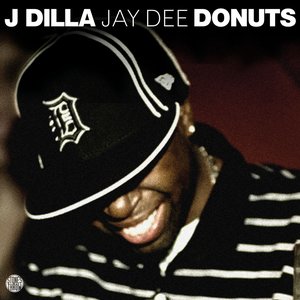Published on Apr 6, 2006
Though no LP can quantify what J Dilla (aka Jay Dee)
gave to hip-hop, Donuts is an appropriate final word.
There are no lyrics on this record, though, only
sounds — tweaked to perfection — by a master of the medium.
As the anchor of Detroit trio Slum Village, he gave
the underground group relevance at a time when Eminem and his
brethren were defining an emerging scene. His cut-and-paste soul
stylings and deep bass grooves gave reprise to luminaries like A
Tribe Called Quest, Common and Pharcyde.
James Yancey died at age 32 on a hospital bed in his
mother’s arms, just three days after his birthday and the release
of Donuts. He loved music, sound, dreams, whatever you call
it. These 31 sweet, circular jams comprise only a chapter of his
story. Jay Dee had a mental jukebox stocking about a gazillion
records. His art came from organizing those vinyl slabs into
something meaningful. He was a hip-hop scientist.
I once read that if you stop a melody halfway,
three-quarters of the way through a cycle, your brain — the
nerves, synapses and blood swimming in your skull — fills in the
blank spaces. Dilla’s trademark experiment is sprinkled generously
throughout this volume.
Using the vehicle of soulful exclamations and
outbursts of yore, Jay Dee seizes the opportunities to pause and
inject a drug in split-second doses — yelps, choruses, a quarter
of a half step — when your brain least suspects it. In his own
avant-hop style, pieces were sewn together ends to middles,
beginnings to silence, fuzz to flourishes.
On Donuts, Dilla uses his signature deep,
rolling bass as the control and encyclopedic knowledge of music as
the x factor. The result is a sometimes dark, always pleasant and
unmistakably Detroit style worthy of front porch perchin’, quiet
reflection and backyard barbecues alike.
The album crawls forth from the ironically named
“Donuts (Outro)” with a wavy taste of repetitious crooning. With
most cuts ranging from 30 to 90 seconds, it feels like Dilla has a
few crates of records he wants you, just you, to hear, but only 40
minutes to get the job done.
If they were any shorter, you’d be annoyed. If they
were any longer, he’d be pretentious. Cuts like “Lightworks,”
“Stepson of the Clapper,” “Twister (Huh, What)” and “One Eleven,”
are a fine introduction to Dilla’s sound. Things really get cooking
at the climax of “Anti-American Graffiti,” “Geek Down,” “Thunder,”
and “Gobstopper” around track 20, but the remaining bites wither in
their shadow.
Of course, with the clunkers hogging up all of about
10 minutes of this radio station-change style mix tape record,
who’s complaining? There’s still a good two dozen treats in this
collection.
The spirit and style of this piece was enough to make
a 17-year-old white kid from the suburbs throw $9.98 down for the
J-88 (Slum Village’s alter-ego) EP in 1999. It’s enough to make me
disappointed over the loss today.
Donuts will serve as the period on the run-on
sentence of his life. Dilla’s body of work, including the essential
Fantastic, Vol. 2 by Slum Village, promises to inspire many
more generations of sound artists and aural scientists.
Donuts is an ending and a beginning, much like its circular
namesake. Rest in peace, James Yancey.
